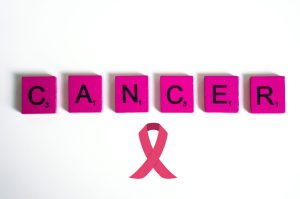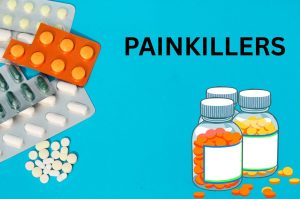Medicine Price Hike: In a strong political move, West Bengal Chief Minister Mamata Banerjee has taken a firm stand against the central government over the recent hike in medicine prices. Expressing her deep concern over the burden this increase would place on common citizens, Banerjee has announced that the Trinamool Congress (TMC) will organize state-wide protests on April 4 and 5. The protests aim to highlight the struggles faced by the poor and middle-class families who are already grappling with inflation and economic hardships.
The price hike, which affects nearly 900 essential drug formulations, has been met with widespread criticism, with opposition leaders and citizens alike calling for government intervention. The issue has now become a focal point of political discourse in West Bengal and beyond.
Medicine Price Hike: The Price Hike and Its Implications
The recent price hike on essential medicines is a significant concern, especially for individuals relying on long-term treatments. Here’s why each category of affected medicines is crucial:
1. Cardiovascular Diseases


- These medicines, including antihypertensives, statins, and anticoagulants, help manage conditions like high blood pressure, heart failure, and stroke prevention.
- Without them, patients face an increased risk of heart attacks, strokes, and other life-threatening complications.
- Higher costs may force patients to skip doses or stop treatment, worsening their conditions.
2. Diabetes


- Insulin and oral antidiabetic drugs are essential for managing blood sugar levels.
- Uncontrolled diabetes can lead to severe complications like kidney failure, nerve damage, blindness, and cardiovascular diseases.
- A price increase may reduce access, leading to poor disease control and higher long-term healthcare costs.
3. Cancer


- Chemotherapy drugs, targeted therapies, and supportive care medications are vital for cancer patients.
- Delayed or incomplete treatment due to high costs can reduce survival rates and treatment effectiveness.
- Price hikes can make life-saving therapies unaffordable for many, especially in lower-income groups.
4. Respiratory Issues


- Medicines like bronchodilators, inhaled corticosteroids, and antihistamines help treat asthma, COPD, and other lung diseases.
- Without proper medication, patients may experience severe breathing difficulties, hospitalizations, and even fatal respiratory failures.
- Higher costs may force people to ration their medication, leading to dangerous flare-ups.
5. Antibiotics


- Essential for treating bacterial infections, antibiotics prevent minor infections from turning life-threatening.
- If access declines due to cost, untreated infections can spread, leading to serious health crises.
- Incomplete antibiotic courses due to affordability issues also contribute to antibiotic resistance, making infections harder to treat.
6. Painkillers


- Used for acute and chronic pain management, including arthritis, post-surgical pain, and cancer-related pain.
- Inaccessibility to pain relief can significantly impact quality of life, leading to suffering and decreased mobility.
- Chronic pain patients may turn to unsafe alternatives if they cannot afford prescribed medications.
Overall Impact
- The price hike disproportionately affects vulnerable populations, including the elderly, low-income groups, and those with chronic illnesses.
- It may increase healthcare burdens due to preventable complications and hospitalizations.
- Government intervention or insurance support may be necessary to ensure continued access to these vital medications.
With healthcare costs already a major concern for millions of Indians, this increase in medicine prices is expected to have a severe impact, particularly on lower-income groups and the elderly, who rely heavily on affordable medications.
The National Pharmaceutical Pricing Authority (NPPA) has attributed the price hike to rising costs of raw materials and global economic factors. However, critics argue that the government should intervene to regulate prices and ensure essential medicines remain affordable.
Medicine Price Hike: Mamata Banerjee’s Response
CM Mamata Banerjee has strongly condemned the central government’s decision, labeling it as “anti-poor” and “insensitive.” During a public address, she emphasized the following points:
- The price hike disproportionately affects the underprivileged and elderly citizens.
- The central government has failed to provide adequate subsidies for essential medicines.
- The pharmaceutical industry’s profit motives should not come at the cost of public health.
- The TMC will mobilize protests to pressure the government into reversing the hike.
Banerjee also pointed out that healthcare should be a fundamental right and urged the Centre to take immediate action to mitigate the financial strain on patients.
Medicine Price Hike: TMC’s Planned Protests on April 4-5
The TMC has announced widespread protests across West Bengal to raise awareness about the issue and demand corrective action from the Centre. The protests will include:
- Rallies in major cities, including Kolkata, Siliguri, and Asansol.
- Public meetings to discuss the impact of the price hike.
- Signature campaigns urging the government to roll back the decision.
- Street demonstrations by healthcare workers, pharmacists, and affected citizens.
The protests are expected to draw large crowds, with party leaders and grassroots workers actively participating. Banerjee has called on all sections of society to join in and amplify the demand for affordable healthcare.
Medicine Price Hike: Reactions from Political Opponents and the Public
The Bharatiya Janata Party (BJP) has defended the price increase, arguing that the rise is due to global market trends and the growing cost of drug production. Union ministers have stated that the government has already implemented several schemes to provide subsidized medicines through Jan Aushadhi stores, which offer cheaper alternatives to branded drugs.
However, critics argue that these measures are not enough and that a blanket price hike on essential drugs is unjustifiable. Citizens have taken to social media to express their frustration, with many sharing personal stories about the financial burden of expensive medications.
Several healthcare advocacy groups have also voiced their concerns, warning that the price hike could lead to an increase in untreated medical conditions, particularly among low-income families who may be forced to cut back on medication.
Medicine Price Hike: Economic and Healthcare Implications
The sudden rise in medicine prices has broader economic and healthcare implications:
- Increased Out-of-Pocket Expenditure: A majority of Indians do not have comprehensive health insurance, and the cost of medicines makes up a significant portion of their healthcare expenses.
- Higher Burden on Government Hospitals: As private healthcare becomes more expensive, public hospitals may experience increased patient loads, leading to overcrowding and resource constraints.
- Impact on Small Pharmacies: Independent pharmacies may struggle to adjust to the price hikes, particularly in rural areas where affordability is a major concern.
- Strain on Chronic Disease Management: Patients suffering from chronic illnesses might skip doses or stop treatment due to the increased cost, leading to higher long-term healthcare expenses.
- Increased Financial Strain on Families: With inflation already affecting daily essentials, families may have to prioritize other expenditures over healthcare, further exacerbating health inequalities.
- Potential Rise in Counterfeit Medicines: When essential drugs become unaffordable, there is an increased risk of people turning to cheaper, unregulated, and potentially dangerous alternatives.
Medicine Price Hike: Possible Government Interventions
Experts suggest several measures that the central government could take to alleviate the burden of high medicine prices:
- Subsidies for Essential Medicines: The Centre could introduce financial relief for medicines used for chronic diseases.
- Expansion of Jan Aushadhi Stores: Increasing the number of outlets providing generic medicines at lower prices.
- Price Control Mechanisms: Stronger regulatory measures to prevent excessive price hikes.
- Incentives for Domestic Manufacturing: Encouraging the production of raw materials within India to reduce dependency on imports and control costs.
- Transparent Pricing Policies: Making the pricing policies of pharmaceutical companies more transparent to avoid arbitrary increases.
- Stronger Consumer Protection Laws: Ensuring that pharmaceutical companies do not exploit pricing mechanisms to maximize profits at the expense of consumers.
- Increased Government Procurement of Medicines: Direct government intervention in bulk purchasing of medicines to regulate prices and ensure availability.
The price hike of essential medicines has sparked a major political and social debate in India. While the Centre attributes the increase to external economic factors, critics, including Mamata Banerjee and the TMC, argue that the government must take a more active role in ensuring healthcare remains affordable for all citizens.
With the upcoming protests on April 4-5, the issue is likely to gain further national attention. Whether the central government will respond with policy changes remains to be seen. However, what is clear is that access to affordable medicine is a pressing issue that cannot be ignored, as it directly impacts the well-being of millions of Indians.
As the situation unfolds, stakeholders from all sectors—government bodies, healthcare professionals, and civil society—must collaborate to find sustainable solutions that prioritize public health over profit motives.
The demand for affordable healthcare is not just a political issue but a humanitarian one. With rising inflation and economic difficulties already burdening households, a price increase in essential medicines only adds to the suffering of common people. The government’s role in ensuring that no citizen is denied basic healthcare due to financial constraints must remain a top priority. The outcome of the upcoming protests will be crucial in determining the future course of action on this pressing matter.
DO FOLLOW:
Also read: Home | Channel 6 Network – Latest News, Breaking Updates: Politics, Business, Tech & More


